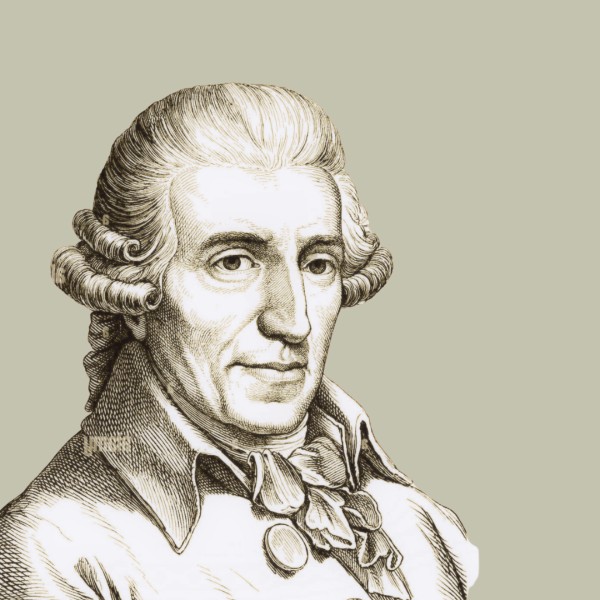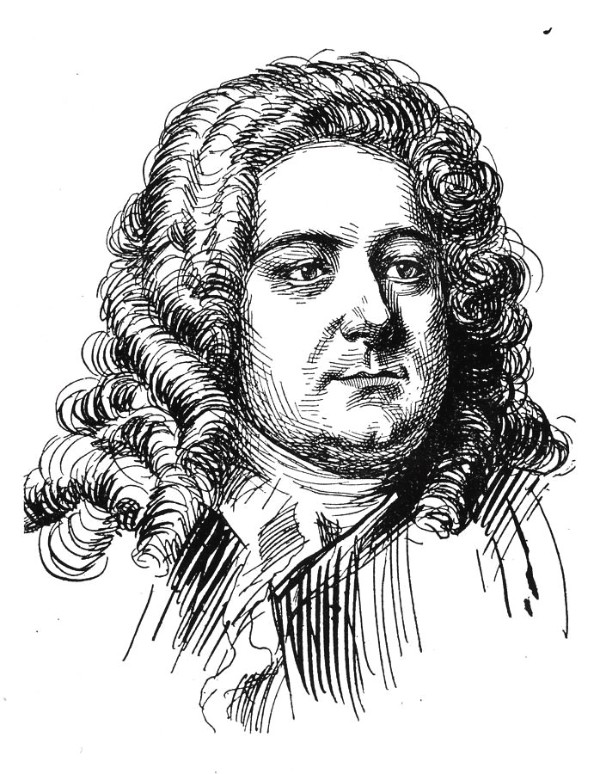Beethoven was famous for his curmudgeonly, antisocial personality. Of course, nowadays, we understand that his prickliness was, at least in part, due to his tinnitus and deafness, as well as the mental health struggles caused by his ever-deteriorating physical health.
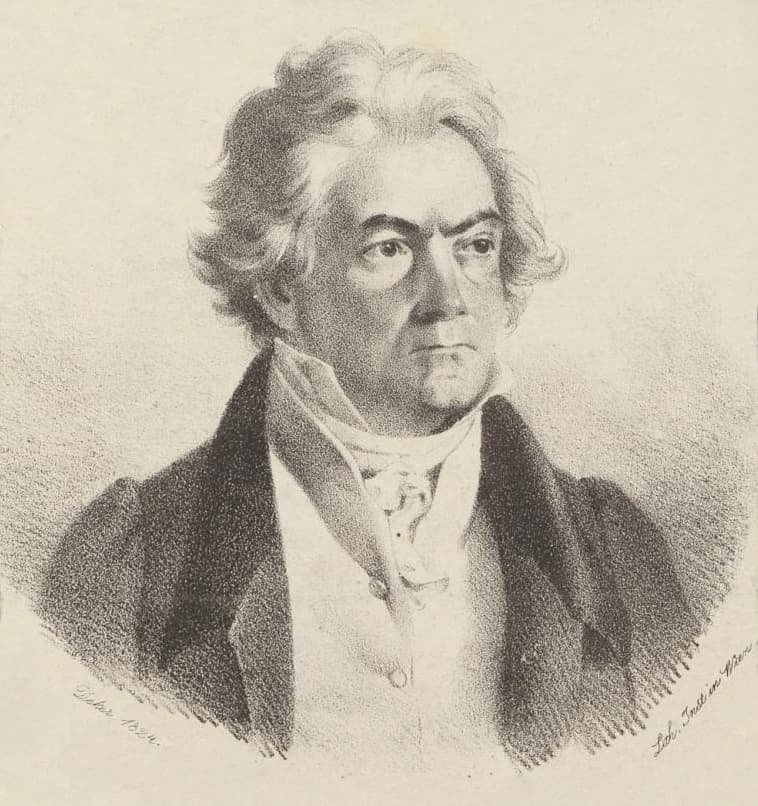
Ludwig van Beethoven in 1824
Despite his abrasiveness, many composers still respected him. (Some even liked him!) We wrote about some of Beethoven’s professional relationships.
Throughout his lifetime – and beyond – Beethoven was the dedicatee or direct inspiration of multiple works. Today, we’re looking at seven pieces of music dedicated to Ludwig van Beethoven.
Joseph Wölfl: Piano Sonata in A major, Op. 6 No. 3 (1799)
Composer and pianist Joseph Wölfl was born three years after Beethoven, in 1773. He studied in Salzburg with two relatives of two very famous composers: Joseph Haydn’s brother Michael and Wolfgang Mozart’s father Leopold.
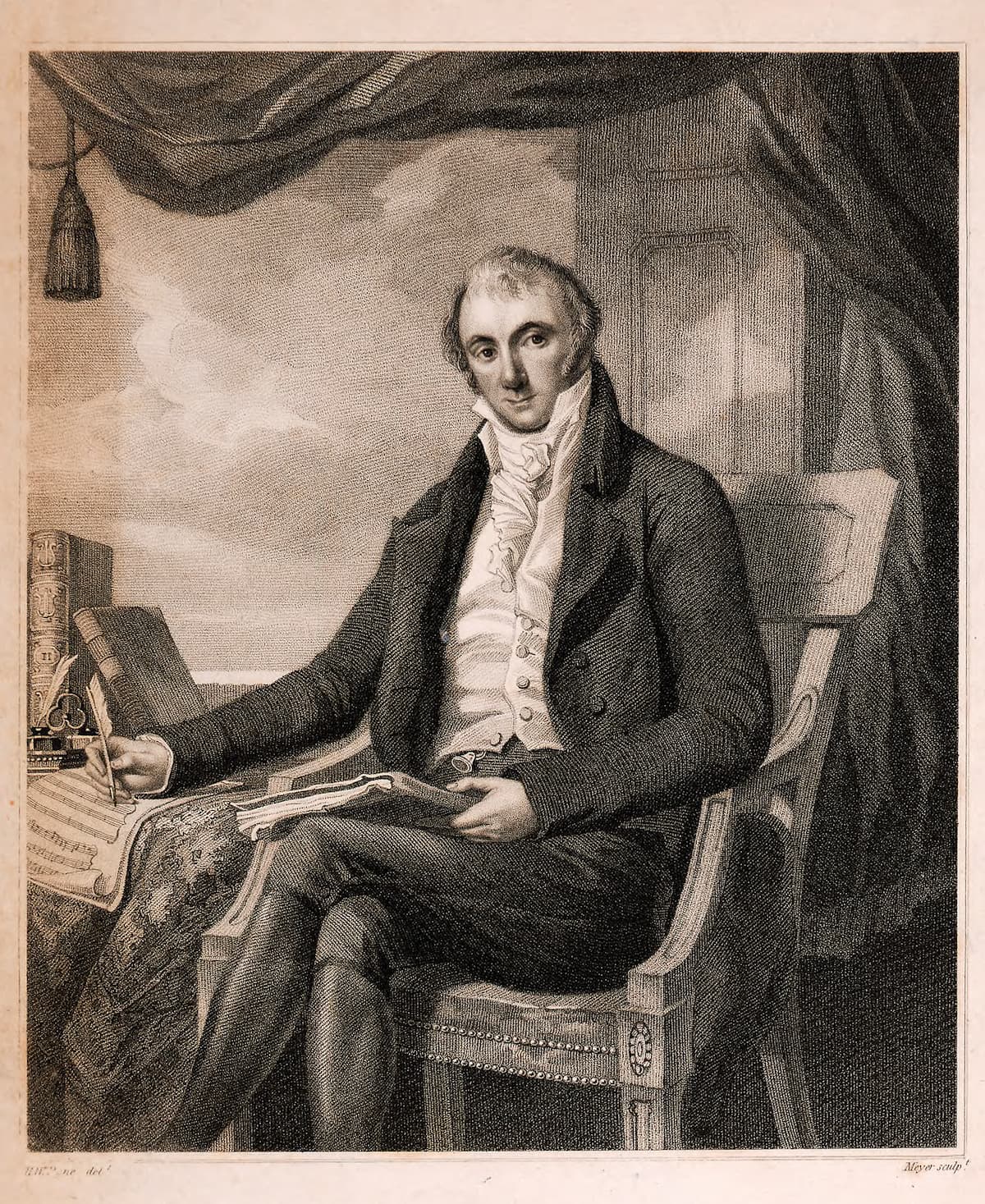
Joseph Wölfl
Beethoven and Wölfl became rivals working in Vienna. In 1799, the two men engaged in a piano duel at the house of a nobleman named Baron Raimund Wetzlar.
Although Wölfl was at least eight inches taller than Beethoven and famous for his wide hand span, Beethoven ultimately emerged as the winner of the piano duel.
Apparently, Wölfl’s career stagnated after the encounter, but not before he dedicated three piano sonatas to Beethoven, including this one.
Ferdinand Ries: Piano Sonata in A Minor, Op. 1, No. 2 (1804)
Ferdinand Ries was born in Beethoven’s hometown of Bonn, Germany, in 1784.
Music was in Ries’s blood. His father Franz was Archbishopric Music Director in Bonn, a position that gave Ferdinand valuable early training and exposure to professional music-making.
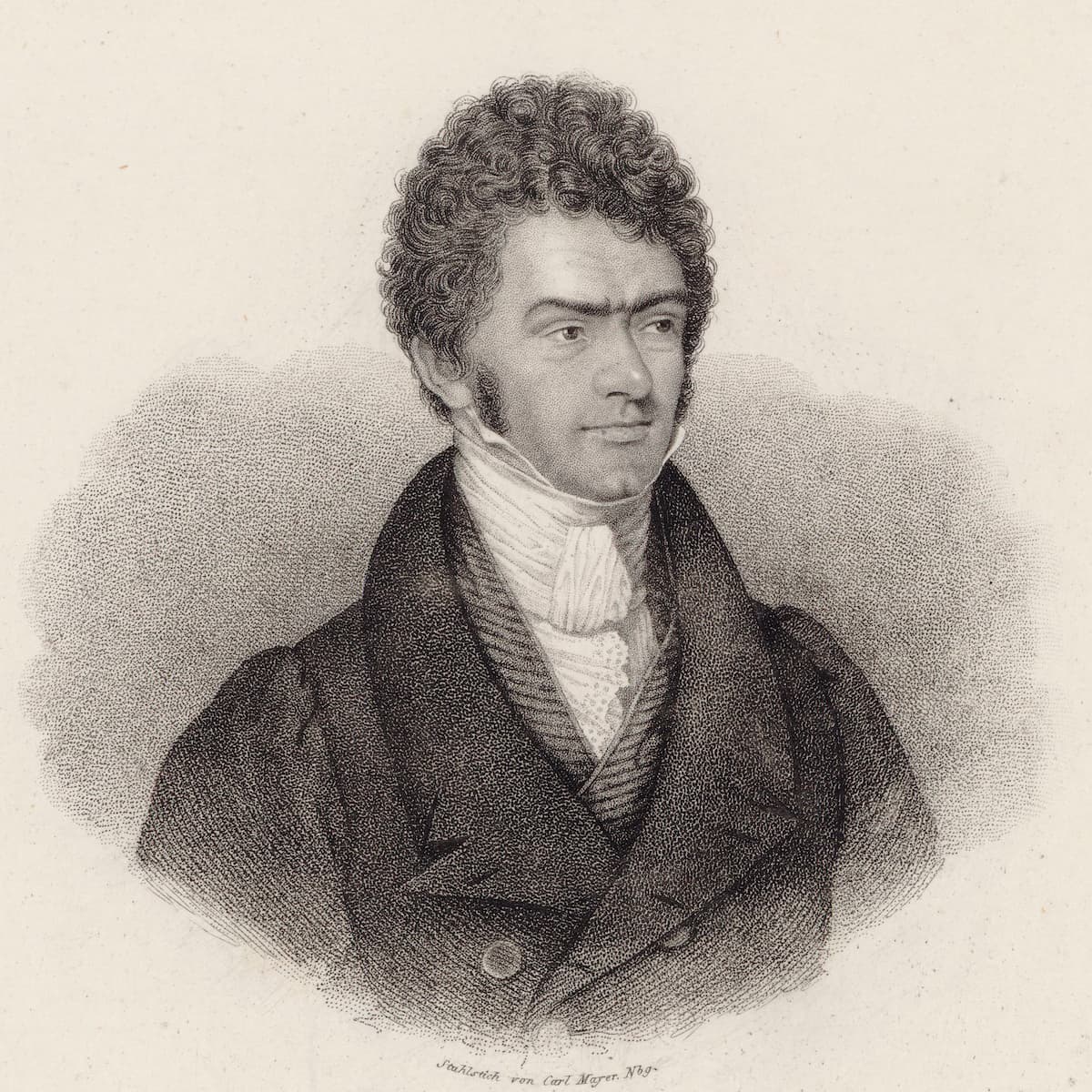
Ferdinand Ries
When Napoleonic forces swept through Bonn, they disbanded the archbishopric music ensembles. So, in early 1803, the nineteen-year-old Ries left Bonn to make his career in Vienna instead.
When he arrived there, he began studying with Beethoven, who, in a full-circle moment, had once studied with his father Franz back in Bonn.
Ries’s responsibilities evolved to include secretarial work and errand-running for Beethoven. In 1804 he also was the soloist in the premiere of Beethoven’s third piano concerto.
That same year he wrote this piano sonata and dedicated it to Beethoven. Unfortunately, despite his huge compositional output, Ries is really only remembered today for his friendship with Beethoven.
Learn more about Ries’s arrangement of Beethoven’s second symphony for piano trio.
Carl Czerny: Fantasy, Op. 27 (ca. 1810)
Carl Czerny was born into a musical family in Vienna in 1791. He was a child prodigy who began playing piano at the age of three and composing by seven. He gave his concerto debut in 1800, playing Mozart.
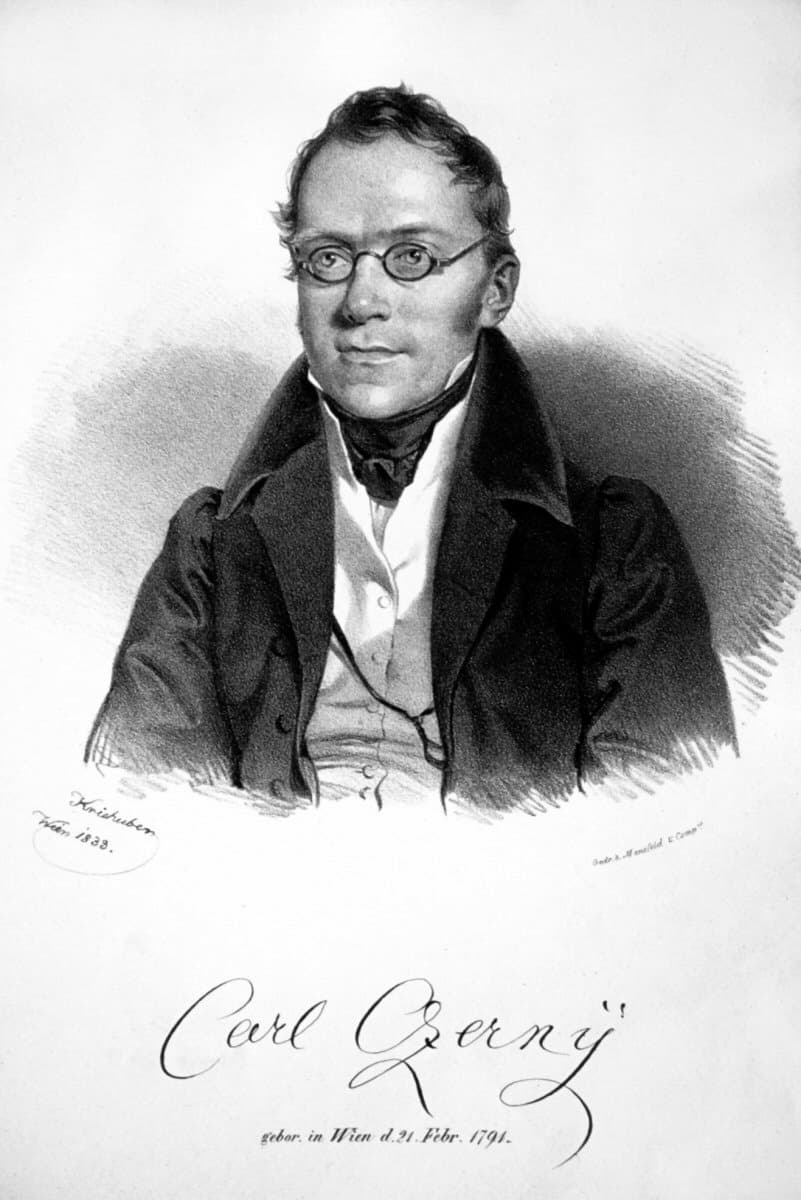
Josef Kriehuber: Carl Czerny, 1833
When he was only ten, he became a student of Beethoven. He studied intensively with him for three years as a boy and intermittently thereafter.
Czerny was a famously prodigious composer. Over the course of his career, he wrote over a thousand works, with opus numbers stretching up into the 800s!
Sometime around 1810, Czerny wrote this Fantasy for solo piano and dedicated it to Beethoven. It is Czerny’s op. 27, so it was written early in his composing career.
Ferdinand Ries: Symphony No. 2. Op. 80 (1814)
Ferdinand Ries, the Beethoven composer friend mentioned above, did not stay in Vienna for his entire career. In 1811 he traveled to Russia to concertize. However, when Napoleon began to invade, Ries relocated to London.
In London, he established himself as a successful composer and pianist and married a wealthy British woman. In 1815, he joined the brand new Philharmonic Society. Soon, he was elected to a leadership role.
When he wrote his second symphony in 1814, he drew from two big inspirations: the Philharmonic Society’s accomplished orchestra and the artistry of Beethoven.
From the opening notes, it’s obvious that this composer has spent a huge amount of time with Beethoven’s music. The work features muscular themes, extreme dynamic contrasts, and countless sforzandos: all traits famously employed by Beethoven.
Franz Schubert: 8 Variations on a French Song (1818)
Composer Franz Schubert lived from 1797 to 1828 and spent the vast majority of his life in Vienna. Despite this, we don’t have any concrete evidence that he and Beethoven met.
We do know that Schubert admired Beethoven deeply. Schubert was introduced to Beethoven’s music as a boy. He played violin in his school’s orchestra, which read through Beethoven’s orchestral music, brand-new at the time.
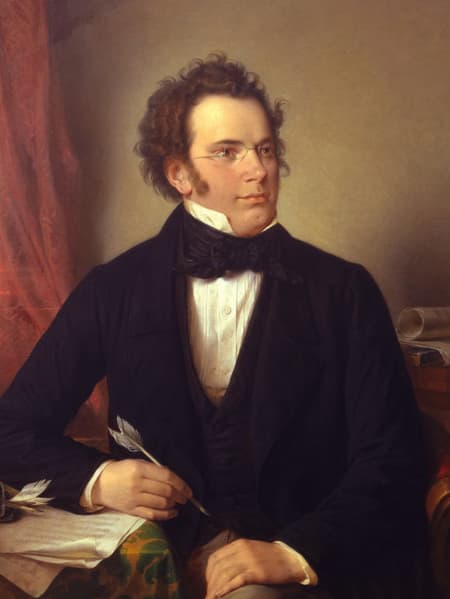
Wilhelm August Rieder: Franz Schubert, 1875 after his 1825 watercolour (Vienna Museum)
In September 1818, when he was twenty-one, Schubert wrote eight variations on a French song for piano four hands. When he published the work a few years later, Schubert included an extremely demonstrative dedication, signing it as Beethoven’s “worshiper and admirer Franz Schubert.”
When Beethoven died in 1827, Schubert dropped by to pay tribute to him on his deathbed. He also served as one of Beethoven’s torchbearers at his funeral. Tragically, Schubert died not long afterward.
Joan Tower: Concerto for Piano (Homage to Beethoven) (1986)
Death did nothing to temper the influence of Beethoven. If anything, his influence has become even greater as the generations have passed.
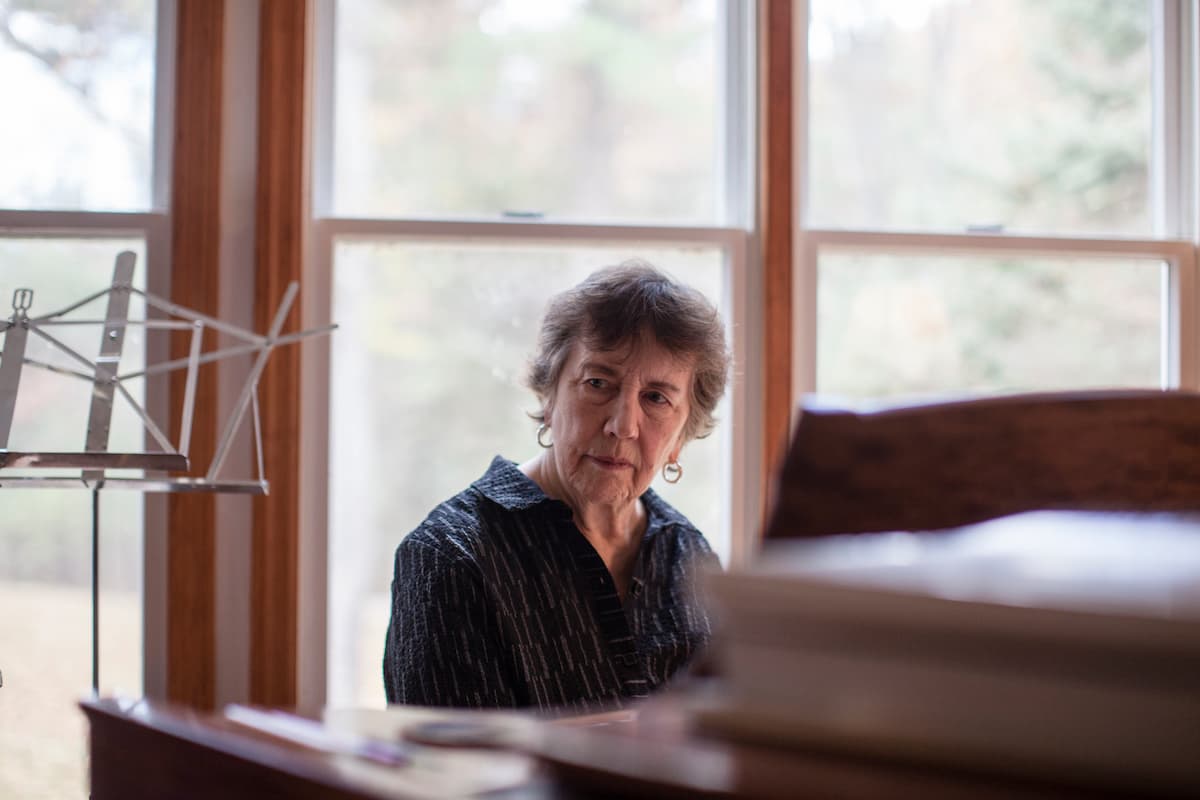
Joan Tower
American composer Joan Tower’s piano concerto is a case in point. She explored the Beethoven mystique with her Concerto for Piano (Homage to Beethoven), which was premiered in 1986 and commissioned by the Hudson Valley Philharmonic, the Saint Paul Chamber Orchestra, and the Philharmonia Virtuosi.
When writing this concerto, Tower took elements from Beethoven’s Tempest and Waldstein sonatas, as well as his final piano sonata.
Kevin Puts: Inspiring Beethoven (2002)
American composer Kevin Puts wrote Inspiring Beethoven for orchestra in 2002.
Puts wrote of this piece:
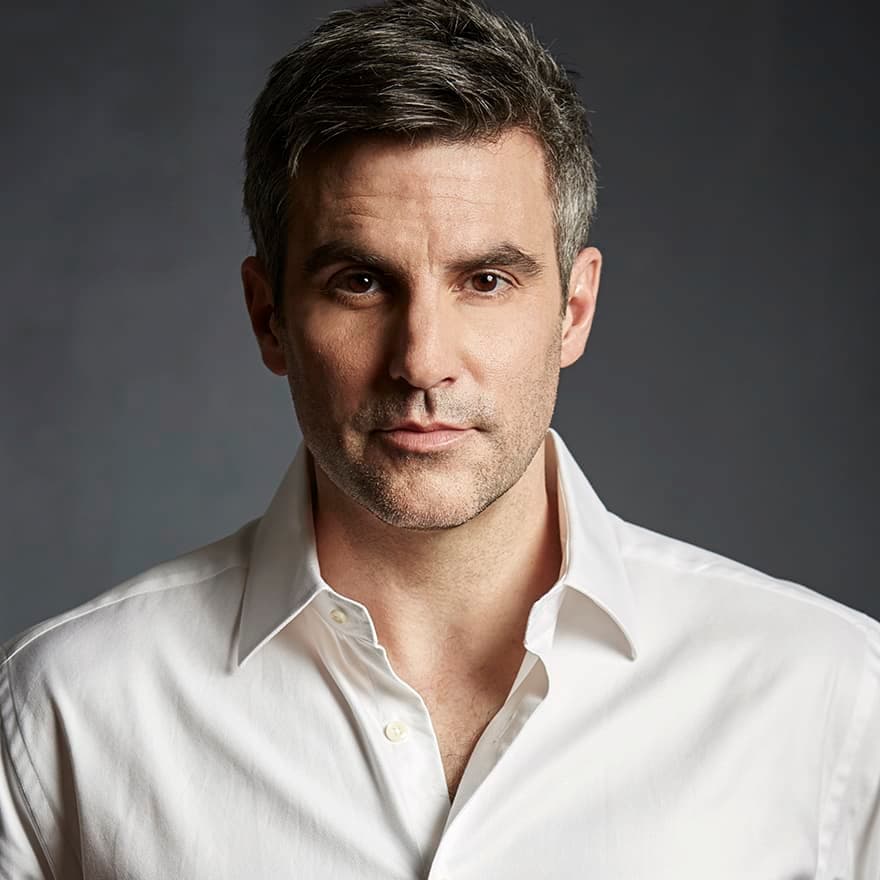
Kevin Puts
“Inspiring Beethoven” is a musical tale, completely imagined, of Ludwig van Beethoven finding the inspiration to compose the first movement Vivace of his Symphony No. 7. The materials of this joyous movement—the shape of the melody, the sprightly dotted rhythm—are all there, but I have cast them in the darkest of colors, reflecting the grim, inescapable realities of the great composer’s life. Out of the darkness intensified by the despair of his ever-worsening deafness, hope and inspiration come like a beacon of light, without warning, as they always seem to. Who or what causes this sudden transformation, I leave to the imagination of the listener.
For more of the best in classical music, sign up for our E-Newsletter

